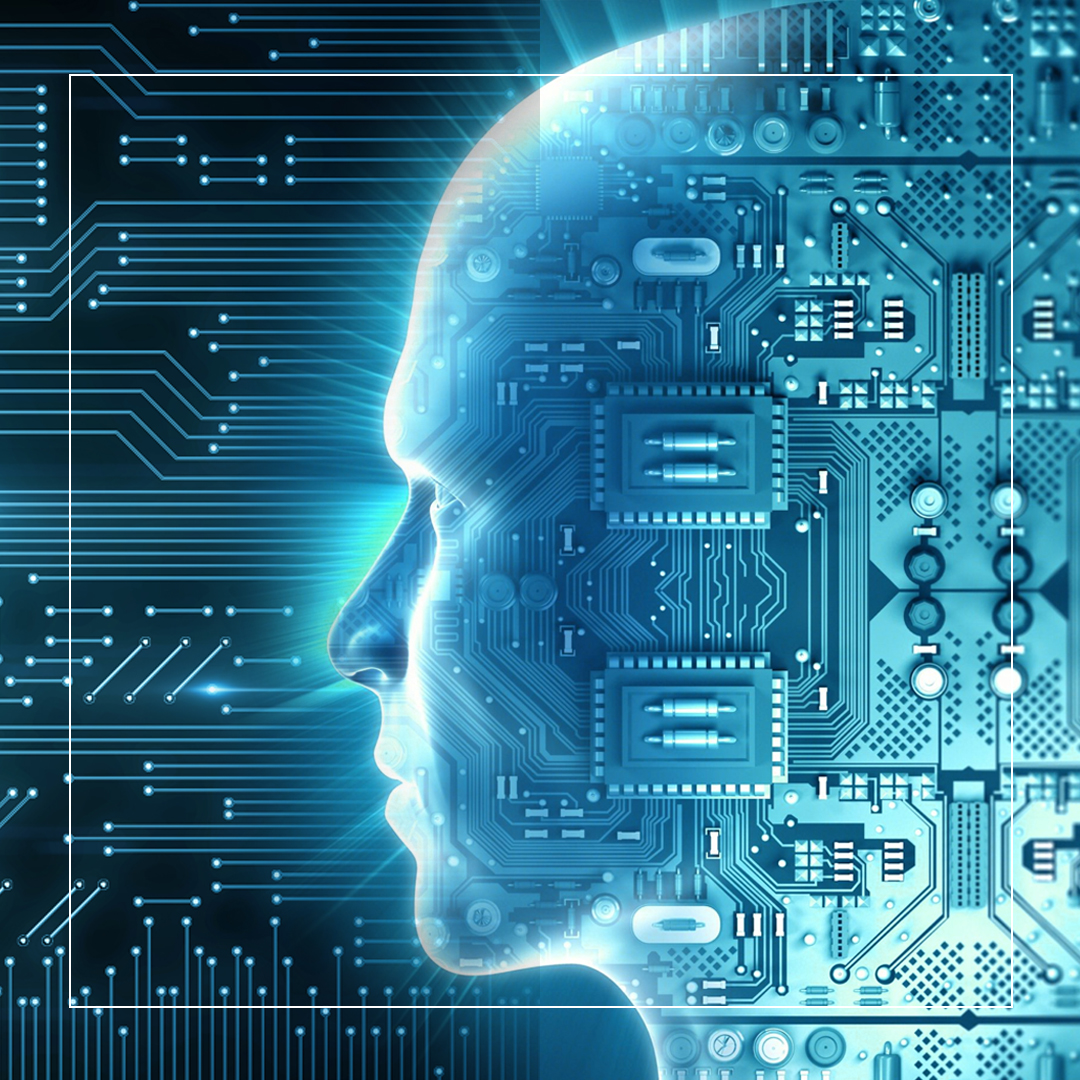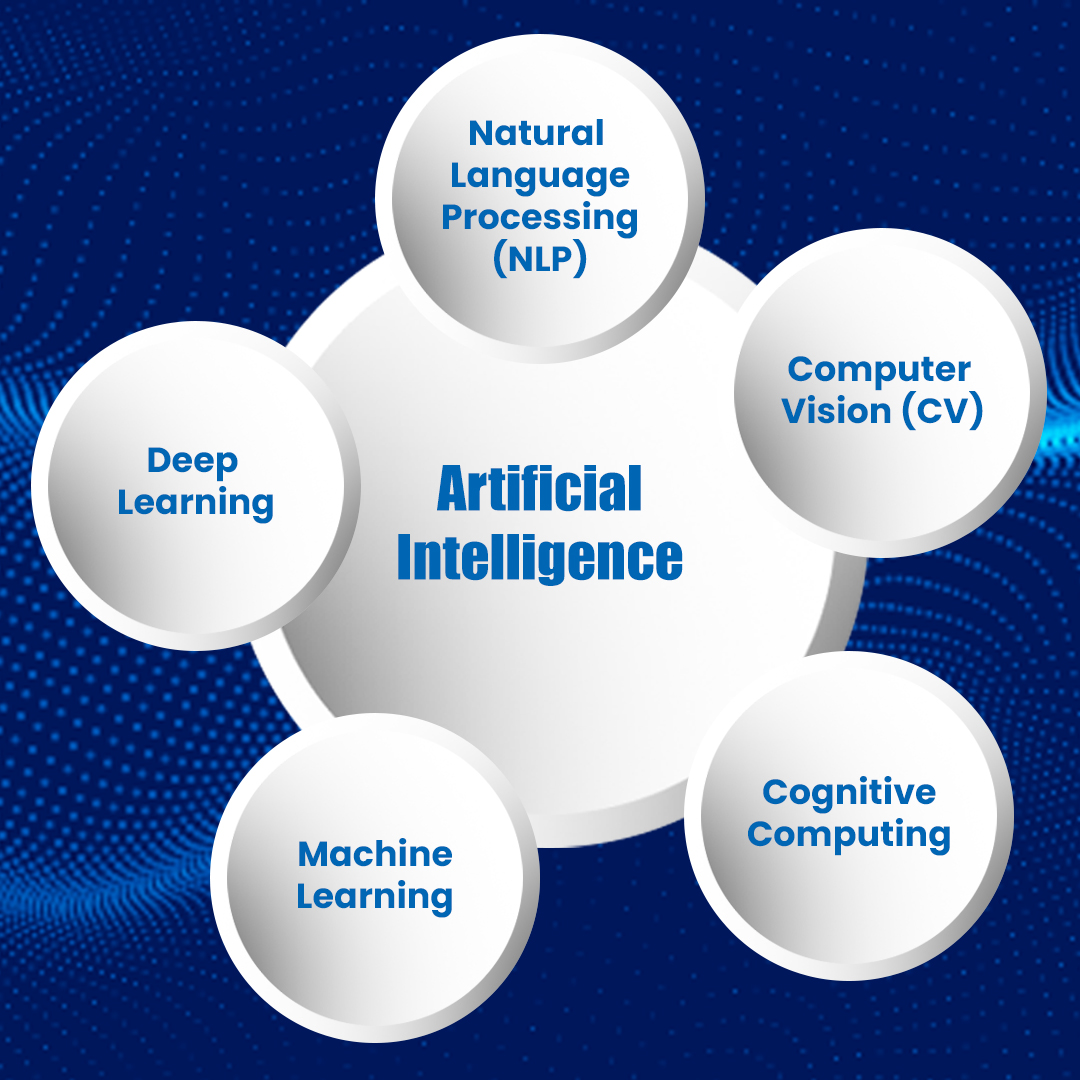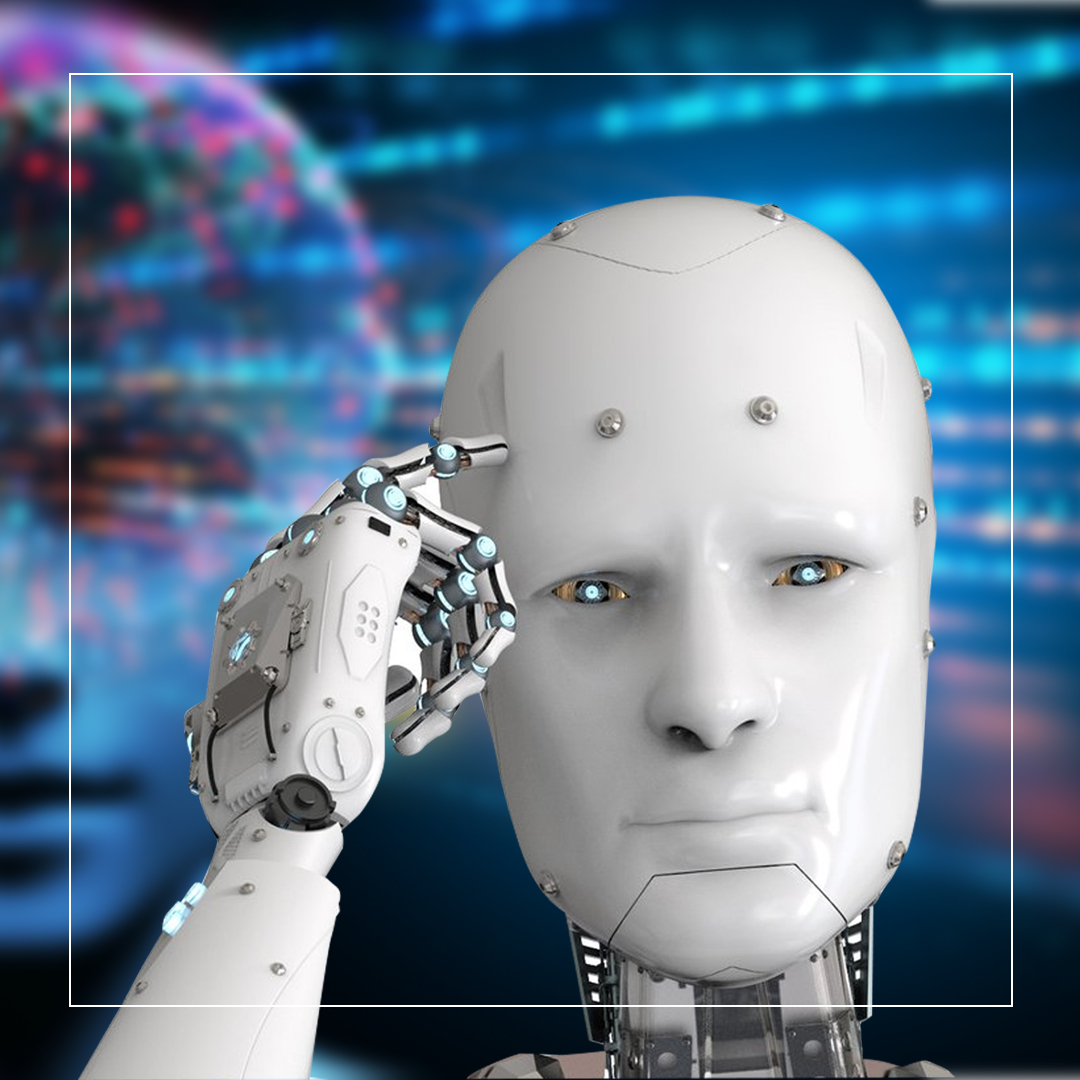What Is Artificial Intelligence? An Ultimate Handbook!
“What is artificial intelligence (AI)?”- The simplest answer to this question can be stated as the capability of a computer program or a machine to think, learn, and perform tasks like humans. To be more precise, artificial intelligence or AI is a congregation of technologies that induce machines with human-like levels of intelligence.
If you want to dive into the definition of artificial intelligence, the deeper meanings and types of AI, and what makes it work, you are at the right place.
As stated in the beginning, Artificial Intelligence is not just a single field of technology. It is an extensive pitch of science encompassing computer science, psychology, philosophy, linguistics, and other areas. The collective efforts of these technologies induce machines with the caliber to sense, grasp, act, and learn just like humans. That’s why the definition of artificial intelligence varies from source to source and from field to field.
What is AI? Definition of Artificial Intelligence
From the above description, I hope it’s clear that artificial intelligence is the collection of technologies that enable machines to perform every task that any humans or intelligent animals can perform or anything that needs the attribute of intelligence.
These tasks or chores may range from processing language, appreciating and understanding pictures, identifying patterns, decision making, problem-solving, etc.
If you are looking for a more formal definition of artificial intelligence, here it is:

“AI is the science and engineering of making intelligent machines, especially intelligent computer programs.” as defined by the founding father of AI, Alan Turing.
A little bit of history: The first substantial work in the field of AI was done by the British mathematician and computing pioneer Alan Mathison Turing. He proposed the Turing Test in 1950. It is a simple technique of determining whether a machine can exhibit human intelligence. If a machine or computer program’s responses or conversational skills can fool a human into believing it, too, is human, that machine has human intelligence.
Let’s keep on exploring a few more definitions of AI.
“Artificial intelligence is intelligence demonstrated by machines, as opposed to the natural intelligence displayed by animals including humans.” Wikipedia.
“An area of computer science that deals with giving machines the ability to seem like they have human intelligence.” Merriam-Webster Dictionary.
“Artificial intelligence (AI), the ability of a digital computer or computer-controlled robot to perform tasks commonly associated with intelligent beings.” The Encyclopedia Britannica.
From all these definitions, we can perceive the simplest explanation of Artificial intelligence or the most modest answer to the question of “what is artificial intelligence (AI)?” can be summarized as:
- Artificial intelligence or AI is the science that gives the machine/computer the power to mimic intelligent human behavior; to imitate the problem-solving and decision-making competencies of the human mind.
- It is the science that makes machines capable of executing tasks intelligently without being explicitly instructed.
- It is the science that makes machines talented in thinking and acting rationally and humanely.
- It is the ability of a machine to think and learn and to do things that are considered attributes of intelligence, including processing language, understanding pictures, detecting patterns, etc.
How does Artificial Intelligence work?
There is a huge lot of AI-related hype that often attracts excitement and controversy alike. Merchants are eager to promote how their products and services use AI. In most cases, most of these vendors convey machine learning (ML) as AI.
An Artificial Intelligence structure pools and employs machine learning and other forms of data analytics methods to achieve AI capabilities.
ML is just one component of AI, and there are many subdomains that together make AI work. Let’s explore them here.

i. Machine Learning
Machine learning is a subfield of artificial intelligence that imparts machines and computer systems the ability to mechanically learn and improve their functioning from experience. This experience denotes exposure to immense amounts of data. Machines will gain learning ability through the data that is continuously being fed into it as inputs. This enables machines to function by making inferences and decisions based on past experiences. It reaches conclusions without being explicitly programmed or without human intervention by identifying patterns, and by analyzing past data.
Read more: What is Machine Learning All About?
ii. Deep Learning
Deep Learning is a method in ML. It instills in machines the ability to process inputs from data. It teaches machines to do it in layers making it easy to classify, deduce, and predict the outcome. It creates Artificial Neural Networks (or sophisticated algorithms) that help in mimicking the functioning of the human brain.
iii. Natural Language Processing (NLP)
NLP is “the application of computational techniques to the analysis and synthesis of natural language and speech”, Oxford Language definition. It is that branch of science that empowers machines to read, understand, interpret, and reply to text or voice data.
iv. Computer Vision (CV)
In simple words, CV is that field of study in Artificial Intelligence that develops procedures to enable computers to‘ see’ and grasp the content of digital images. This understanding helps machines to analyze the situation and make decisions.
v. Cognitive Computing
Cognitive computing is a sub-domain of Artificial Intelligence that helps machines to have human thoughts. This is simulated through the collective efforts of machine learning, deep learning, neural networks, NLP, and sentiment analysis. It helps machines to copycat human conduct and reasoning to crack complex problems.
What are the Types of Artificial Intelligence?
All the above-discussed domains are ever-evolving in the landscape of artificial intelligence and all of them are not needed for all types of AI. Based on the purpose for which different AI systems are created we can differentiate them into.
Narrow AI
Most of the artificial intelligence applications that we come across today are Narrow AI. They are confined to a narrow area and are trained to perform specific tasks. Though some people prefer to call it ‘Weak’ AI, it is actually not weak. They are powerful but are restricted to a narrow or slim field. AI applications that accomplish a single task or a set of strongly associated tasks such as weather apps; digital assistants such as Apple's Siri, Amazon's Alexa, Google Search, Google Translate, and other natural language processing tools; software that analyses data to optimize a given business function, etc., are examples of narrow AI.
They are ‘weak’ in the sense that they have no resemblance to natural human intelligence. The absence of self-awareness, cognizance, and unpretentious aptitude of humans prevent them from thinking for themselves.
General AI
In contrast to narrow AI, General or Strong AI is a theoretical form of AI where the intelligence of machines is at par with human intelligence. The presence of sentient consciousness in machines helps them to solve problems, learn, and plot for the future. As stated, it is a hypothetical or theoretical form, and hence no true applied examples are in use today. In this model, a machine can perform any intellectual task that a human being can. As this scenario does not exist beyond the silver screen we need human-machine collaboration. Advanced Robotics is an example of General AI.

Why Artificial Intelligence?
After discovering ‘what is artificial intelligence’ and the types of AI, it is essential to explore the purpose of AI.
AI helps in supplementing human capabilities
The core purpose of AI is to assist and supplement human capabilities. They are great at delivering insights and hence can help us make advanced decisions that may have sweeping consequences. Enterprises can make use of artificial intelligence to derive perceptions into their operations that were previously hidden.
AI is great in executing repetitive tasks
In the case of repetitive and monotonous tasks machines can do better than humans. Detail-oriented tasks that involve analysis of huge data/numbers reading and analyzing long documents may cause boredom in humans resulting in careless errors. But machines can do it effectively as they don’t suffer from monotony.
AI improves efficiency
Machines can accomplish tasks with fewer errors. Companies can improve their process efficiencies by automating many tasks. They can be used to make smart business predictions based on hard data rather than intuitive outlooks. Faster and efficient decision-making help companies gain a competitive advantage over their competitors.
Applications of Artificial Intelligence
Artificial intelligence finds extensive applications in diverse fields such as healthcare, education, business, finance, law, banking, manufacturing, transportation, security, ecommerce, gaming, robotics, social media, agriculture, etc. As it can solve complex problems efficiently by augmenting human capability and capacity it is a dynamic tool helpful in many industries when it comes to decision-making and in cutting down repetitive tasks.
Below are some resources that explain the uses of Artificial intelligence in some core areas.
Read more: How Is Artificial Intelligence Changing the Travel Industry?
Read more: 6 Ways Artificial Intelligence Is Transforming Digital Marketing
Read more: Check Out How Artificial Intelligence in E-commerce Really Works
We come across AI in our everyday lives. Personalized recommendations that we find in online shopping portals, digital personal assistants in smartphones, cyber security elements, etc. are some examples.
Read more: 9 Ways Machine Learning Impacts Our Daily Lives.
The Bottom Line
The age of artificial intelligence is upon us, and there is no going back from here. Therefore, it is imperative to be abreast of ‘what is artificial intelligence', the changing trends in it, and the tools and technologies in the domain that contribute to the growth of this realm.



I am glad that I found out this article on AI!
This was a helpful post as in this post the definitions are simple due to which I was able to understand the meaning of Ai easily and other concepts too.
Thank you for sharing this post.
Great Information. Thanks for sharing
Very Good And Useful information Thank For Sharing
Thank you for sharing this info. This is really useful.